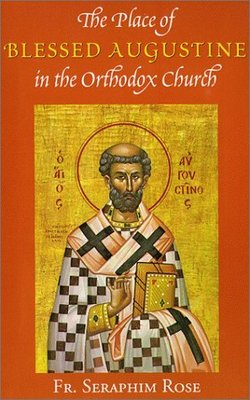Augustine of Hippo
Augustine of Hippo (354–430) is one of the great Church Fathers he fourth century; he was the eldest son of Saint Monica.
Life
Aurelius Augustinus was born in 354 in Tagaste to a Christian mother and a Pagan father, raised in Roman north Africa, educated in Carthage, and employed as a professor of rhetoric in Milan by 383. He followed the Manichaean religion in his student days, and was converted to Christianity by the preaching and example of Ambrose of Milan. He was baptized at Easter in 387, and returned to north Africa and created a monastic foundation at Tagaste for himself and a group of friends. In 391 he was ordained a priest in Hippo Regius (now Annaba, in Algeria). He became a famous preacher (more than 350 preserved sermons are believed to be authentic), and was noted for combatting the Manichaean heresy.
In 396 he was made coadjutor bishop of Hippo (assistant with the right of succession on the death of the current bishop), and remained as bishop in Hippo until his death in 430. He left his monastery, but continued to lead a monastic life in the episcopal residence. He left a Rule (Regula in Latin) for his monastery that has led him to be designated the "patron saint of Regular Clergy," that is, parish clergy who live by a monastic rule.
Augustine died on August 28, 430, during the siege of Hippo by the Vandals. He is said to have encouraged its citizens to resist the attacks, primarily on the grounds that the Vandals adhered to heretical Arian Christianity.
Influence as a theologian and thinker
Augustine remains a central figure, both within Christianity and in the history of Western thought. Himself much influenced by Platonism and neo-Platonism, particularly by Plotinus, Augustine was important to the "baptism" of Greek thought and its entrance into the Western Christian (and subsequently the European) intellectual tradition. Also important was his early and influential writing on the human will, a central topic in ethics, and one which became a focus for later philosophers such as Arthur Schopenhauer and Friedrich Nietzsche, but also to the Protestant Reformers such as Martin Luther and John Calvin.
Augustine's writings developed St Ambrose of Milan's theory of just war. He also advocated the use of force against the Donatists, asking "Why . . . should not the Church use force in compelling her lost sons to return, if the lost sons compelled others to their destruction?" (The Correction of the Donatists, 22-24). However, he objected to capital punishment and said that it would be preferable to set his opponents free than to execute them.
The addition of Augustine to the Menologion is uncertain. Some regard him as glorified by popular recognition in the distant past, yet he was not added to the Horologion in Greece until 1983 (and then only in the index, but with no mention of his name on the page for June 15). He appears to have been added to the calendar in Russia during the "Western Captivity" when the influence of Latin scholasticism was at a high point. His feast day in the Orthodox Church is June 15. In the West, he is remembered on August 28. which was the day of his death in A.D. 430.
Reception of Augustine in the Orthodox Church

The Fifth Ecumenical Council, held in Constantinople in A.D. 553, listed Augustine among other Fathers of the Church, though there is no unqualified endorsement of his theology mentioned (just as there is none for most saints of the Church):
- We further declare that we hold fast to the decrees of the four Councils, and in every way follow the holy Fathers, Athanasius, Hilary, Basil, Gregory the Theologian, Gregory of Nyssa, Ambrose, Theophilus, John (Chrysostom) of Constantinople, Cyril, Augustine, Proclus, Leo and their writings on the true faith.[1] (emphasis added)
In the acts of the Sixth Ecumenical Council (not yet translated into English), he is called the "most excellent and blessed Augustine" and is referred to as "the most wise teacher." In the Comnenian Council of Constantinople in 1166 he is referred to as "Ο ΑΓΙΟΣ ΑΥΓΟΥΣΤΙ